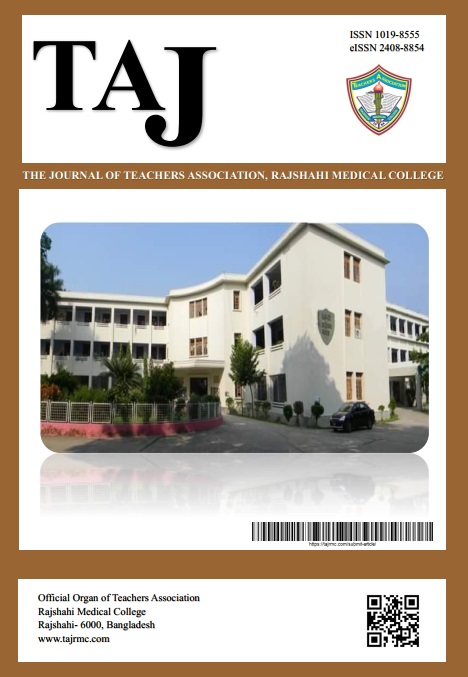| Efficacy of Empagliflozin as Add-on Therapy in Patients with Uncontrolled Type 2 Diabetes Mellitus |
| Mita Rani Joysoual, Shahin Ara, Md. Nazmul Haque, Rita Ghosh, Tamanna Afroze, Saqib Salah Aufi |
| DOI: |
| Pdf Download |
Background: Metformin is recommended as first-line pharmacotherapy for patients with type 2 Diabetes Mellitus (T2DM) who fail to achieve glycemic control through lifestyle modification. Metformin initially lowers blood glucose, but as diabetes progresses, it alone frequently fails to maintain glycemic control, and additional therapies are required. Empagliflozin is a potent and selective sodium-glucose co-transporter 2 (SGLT2) inhibitor that is effective in reducing blood sugar levels as monotherapy or add-on to existing therapy with significant improvements in glycemic control and weight. Materials & Methods: This quasi-experimental study was conducted in the Department of Pharmacology and Therapeutics in collaboration with Rajshahi Diabetic Association General Hospital, Rajshahi, for one year from January 2021 to December 2021 on 50 uncontrolled T2DM patients (glycosylated hemoglobin, HbA1c > 7.0 to ≤ 10.5%) for more than 12 weeks. The investigating drug, empagliflozin 10 mg (1 tablet) as a once-daily dose, was added to the ongoing treatment of each patient as 3rd line treatment and was followed up at 6 and 12 weeks. Results: The mean FBS at baseline was 10.8 mmol/L, which declined to 8.5 mmol/L at six weeks and then to 7.2 mmol/L after 12 weeks of intervention with Empagliflozin as add-on therapy in patients with uncontrolled T2DM. The overall reduction of FBS from baseline to 12 weeks of intervention was statistically significant (p < 0.001). Simultaneously the mean HbA1c also reduced from 9.4% to 7.7

